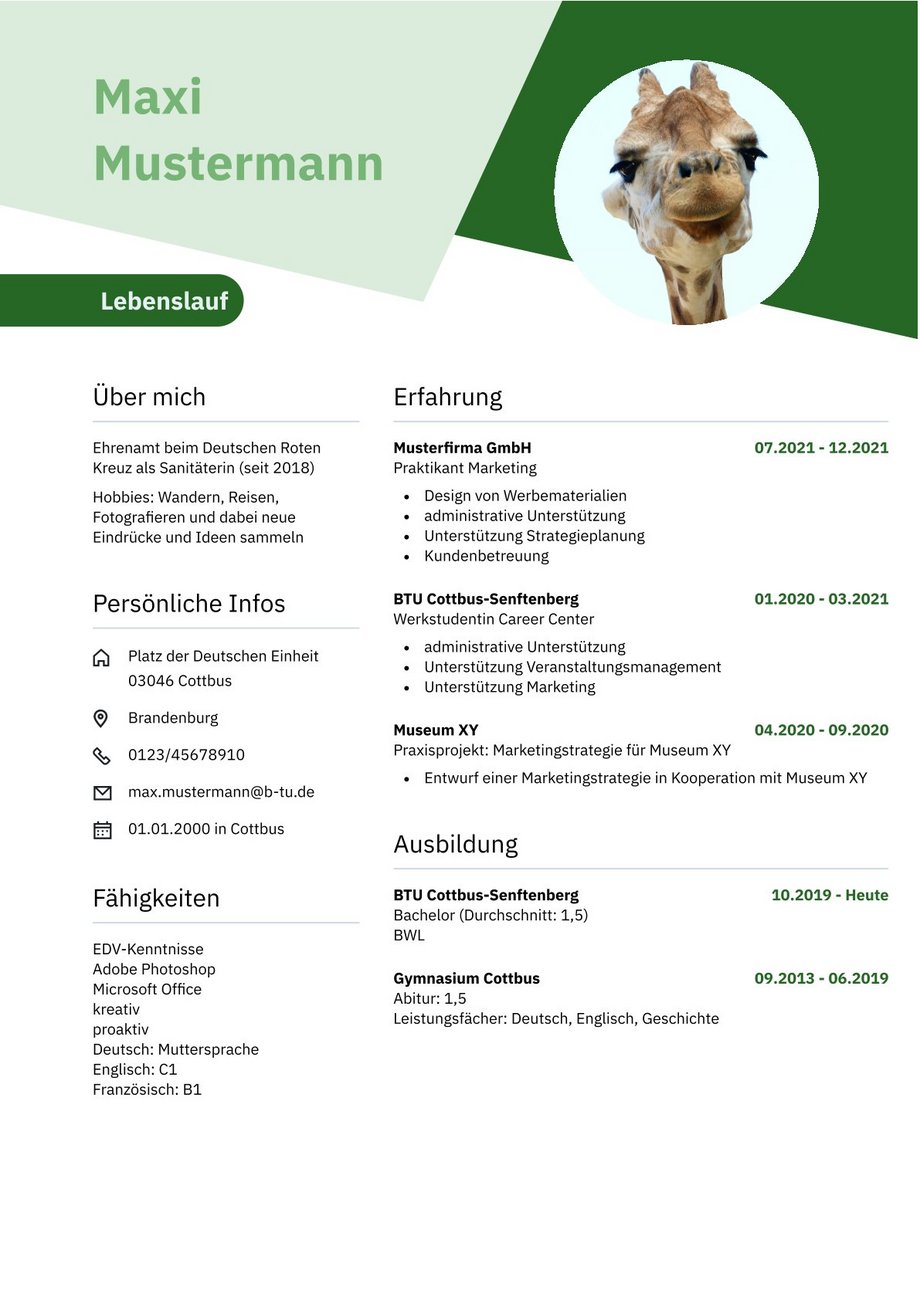The CV
Class instead of mass!
It is important to realise what purpose a CV should fulfil: Namely, to present all relevant information clearly.
In concrete terms, this means that you should only include information that is relevant to the company or the position. Limit yourself to the highlights of your career and concentrate on presenting them in the best possible way. Please also ensure consistency between your cover letter and CV. Use certain key terms from the cover letter in the CV to make it appear as if it is "all of a piece". Just as with the cover letter, a CV must be adapted to each job description.
HR departments often find CVs that are nothing more than a string of facts. There is nothing wrong with this at first. However, it does not necessarily give a clearer picture of you and your experience. Describe your previous positions in more detail with your specific tasks and areas of activity. In particular, list the information that is relevant to the position in question or that precisely underpins the required competences.
You can find an example of how to categorise the relevant information here:
Required information:
- First name and surname
- Home address
- E-mail address
- Telephone number (you should only include this if you feel comfortable answering the call. A telephone call is often the first direct contact with the employer and therefore also the first impression)
Additional information may include
- Date of birth/place of birth
- Marital status
- Religious affiliation (only if useful in the context of employment)
- Nationality
Information of this kind are your free choice. Please also note the General Equal Treatment Act.
Alternatively, personal data can also be placed on the cover sheet or the first page with the photo opposite.
- Positions with brief descriptions of the activity
- Employer (location and times)
Vocational training
- Type of vocational training
- Training company and training location
- Degree and job title
University degree
- Subject or subjects
- University and degrees incl. final grade
- Study specialisations
- Subject of thesis/doctoral studies
Periods of military or civilian service, if applicable
Students with work experience:
- Secondary school or place of higher education entrance qualification (international students should make sure to translate the higher education entrance qualification).
- final grade
- Only include internships if they are relevant to the position (e.g. if you want to emphasise in your cover letter that you have always been interested in your field)
Students without significant work experience:
- Secondary school incl. institution of higher education entrance qualification (Internetaionale students should make sure to translate the higher education entrance qualification)
- final grade
- If applicable, internships, student exchanges, vocational preparation measures, holiday jobs
Be brief in any case!
- Certified further training (certificate should appear in the appendix or at least it should be stated in the cover letter/application that the certificates are available and can be submitted later)
- Languages can be specified here (usually A1-C1 level). Start with German.
- IT skills can be stated here, e.g. Microsoft applications or certain computer programmes
- For the topic "Knowledge and skills", the applicant should indicate exactly what type or how high their competences are - for example by means of a graphical representation of a scale or a literal sorting into "basic", "advanced", "expert".
- Voluntary positions can emphasise professional, social and personal skills
- Honorary positions that require you to be released from work, such as volunteer fire brigades, should be mentioned in the interview at the latest
- Hobbies and leisure activities are often a very rewarding topic in the interview or in the written application because they can also emphasise soft skills.
- Despite the private component that resonates here, it is taboo to invent hobbies.
- When it comes to hobbies, try not to mention sports with a high risk of injury or, if you are asked about them in the interview, emphasise that you rarely get injured.
- Leisure activities should be precisely defined.
Don't forgetthe date and signature at the end of your CV!
In addition to all the relevant information, the design of an application also plays an important role. The websites Lebenslauf.com and Lebenslauf.de can provide an initial orientation for the design of your CV or you can use templates from Microsoft Word or Canva. TIP: Depending on your employer or industry, you can also customise your design!
TIP: Write your application in German!
If you have any further questions, we can provide support with our seminars and counselling services.

